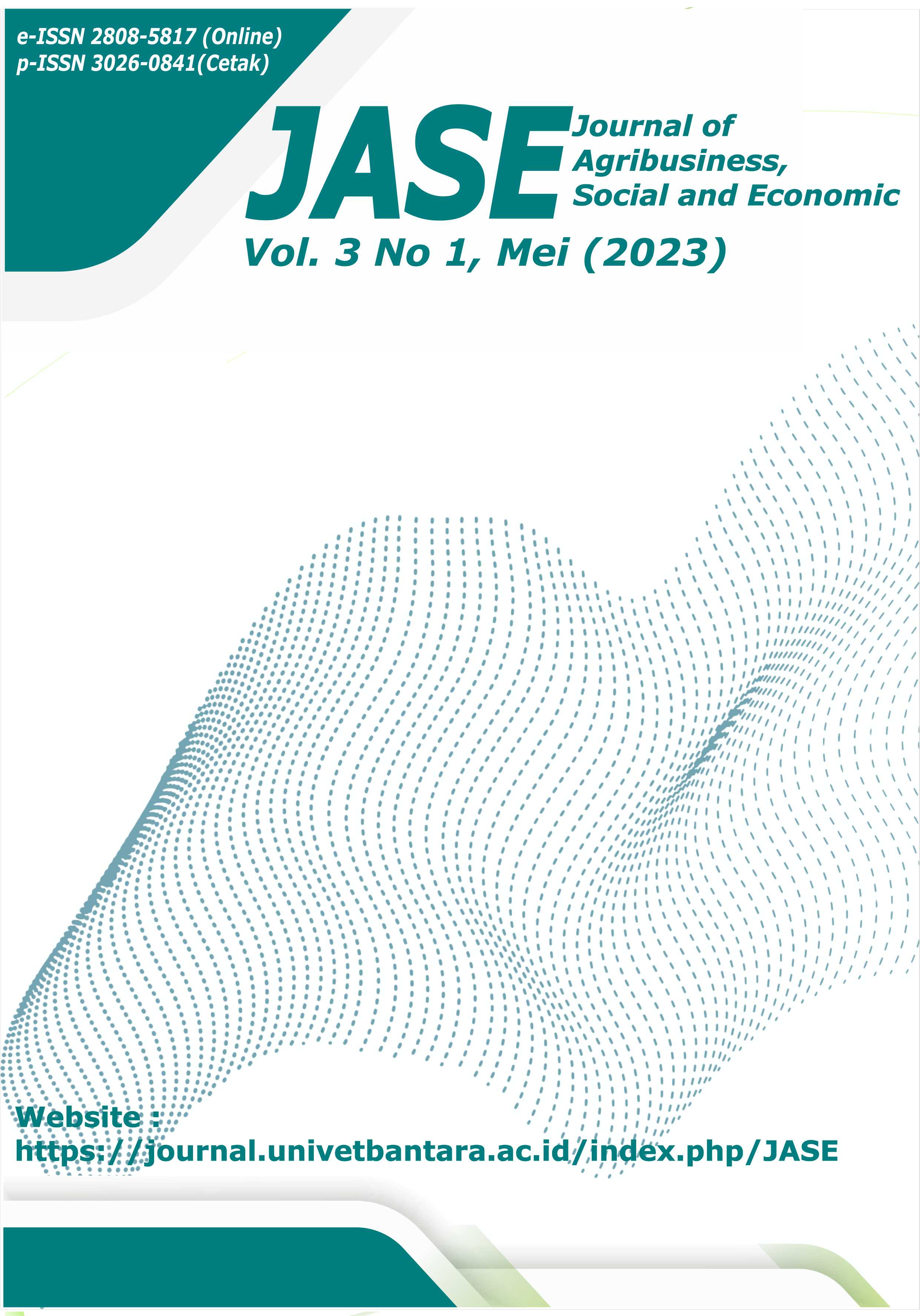Analysis of The Operational Risk Management of Ethno Bali Foundation Bee Agrotourism in Baha, Mengwi Village
Abstract
Tourism is one of the largest and fastest-growing economic sectors in the world. One of the areas that has the best potential in terms of agro-tourism is the Bali area. Bali is the area that is most in demand, so it is not surprising that many foreign tourists and local tourists make Bali their favorite tourist destination.The method used in this research is quantitative descriptive research. The total number of respondents in this study was 25. Operational risk of a company to be able to know the right action decisions in minimizing risk needs to process the calculation of the level of impact and the level of possibility through the Godfrey method. These 10 risks are the most intense risks occurring in the Etno Bali Foundation Bee Agrotourism. The risks in the Lebah Etno Bali Foundation Agrotourism occur due to a less than optimal system, both from HR (Human Resources) to the management of the facilities there1.The results showed that the operational risks identified in the Etno Bali Foundation Bee Agrotourism Unit were 11 types of risks and. Efforts to address operational risk are prioritized have high and extreme levels through preventive and mitigating efforts.
Downloads
References
Ballotta, L., Fusai, G., Kyriakou, I., Papapostolou, N. C., & Pouliasis, P. K. (2020). Risk management of climate impact for tourism operators : An empirical analysis on skiesorts.TourismManagement,77(July2018),104011. https://doi.org/10.1016/j.tourman.2019.104011
Bhatti, M. A., Nawaz, M. A., Ekonomi, D., & Bahawalpur, U. I. (2021). Dampak Manajemen Risiko Pariwisata , Adopsi TI , Ketangkasan , dan Ketahanan terhadap Kinerja Rantai Pasokan Pariwisata Berkelanjutan Industri Pariwisata Maladewa Dampak Manajemen Risiko Pariwisata , Adopsi TI , Kelincahan dan Ketahanan terhadap Kinerja Rantai Pasokan Pariwisata Berkelanjutan Industri Pariwisata Maladewa. April. https://doi.org/10.52131/jom.2020.0202.0020
Gede, G., Tnggp, P., & Barat, J. (2020). Analisis Manajemen Risiko pada Kawasan Taman Nasional Gunung Gede Pangrango (TNGGP) Jawa Barat.
Mahaliyanaarachchi, R. P. (2016). Agri Tourism as a Risk Management Strategy in Rural Agriculture Sector : With Special Reference to Developing Countries. 11(1), 1–12.
Mikuli, J., Milo, D., Holi, H., & Prebe, D. (2018). Journal of Destination Marketing & Management Strategic crisis management in tourism : An application of integrated risk management principles to the Croatian tourism industry. 7, 36–38. https://doi.org/10.1016/j.jdmm.2016.08.001
Nuriyev, A. (2021). Identification of the Tourism Risks for Z-Value Based Risk Assessment Identification of the Tourism Risks for Z-Value Based Risk Assessment. January 2020. https://doi.org/10.26417/ejef.v3i3.p47-55
Pangestuti DC. 2019. Manajemen Risiko Bisnis. Jakarta (ID): Universitas Pembangunan Nasional “Veteran”
Rezvani, M., Nickravesh, F., Astaneh, A. D., & Kazemi, N. (2022). Journal of Outdoor Recreation and Tourism A risk-based decision-making approach for identifying natural-based tourism potential areas. Journal of Outdoor Recreation and Tourism, 37(December 2021), 100485. https://doi.org/10.1016/j.jort.2021.100485
Sante, Z. V, Murni, S., Tulung, J. E., Kredit, P. R., Likuiditas, R., Risiko, D. A. N., & Ekonomi, F. (2021). LQ45 , buku iii dan buku iv periode 2017-2019 the effect of credit risk , liquidity risk and operational risk on the profitability of banking companies listed in lq45 , buku iii and buku iv period Jurnal EMBA Vol . 9 No . 3 Juli 2021 , Hal . 1451 - 1462. 9(3), 1451–1462.
Toader, I., & A, D. N. M. Ț. (2020). the risk management in the tourism , rural tourism and agritourism. 20(2), 477–482.
Yusnita, V. (2019). p engembangan p ariwisata b erbasis a growisata m elalui p enguatan p eran k elompok w anita t ani ( s tudi di d esa s ungai l angka k ecamatan g edong t ataan k abupaten p esawaran ). 10, 9–18.
Downloads
Published
How to Cite
Issue
Section
License
Authors who publish with the Journal of Agribusiness, Social and Economic agree to the following terms:
- Authors retain copyright and grant the journal the right of first publication with the work simultaneously licensed under a Creative Commons Attribution License (CC BY-SA 4.0) that allows others to share the work with an acknowledgment of the work's authorship and initial publication in this journal.
- Authors are able to enter into separate, additional contractual arrangements for the non-exclusive distribution of the journal's published version of the work (e.g., post it to an institutional repository or publish it in a book), with an acknowledgment of its initial publication in this journal.
- Authors are permitted and encouraged to post their work online (e.g., in institutional repositories or on their website) prior to and during the submission process, as it can lead to productive exchanges, as well as earlier and greater citation of published work.


